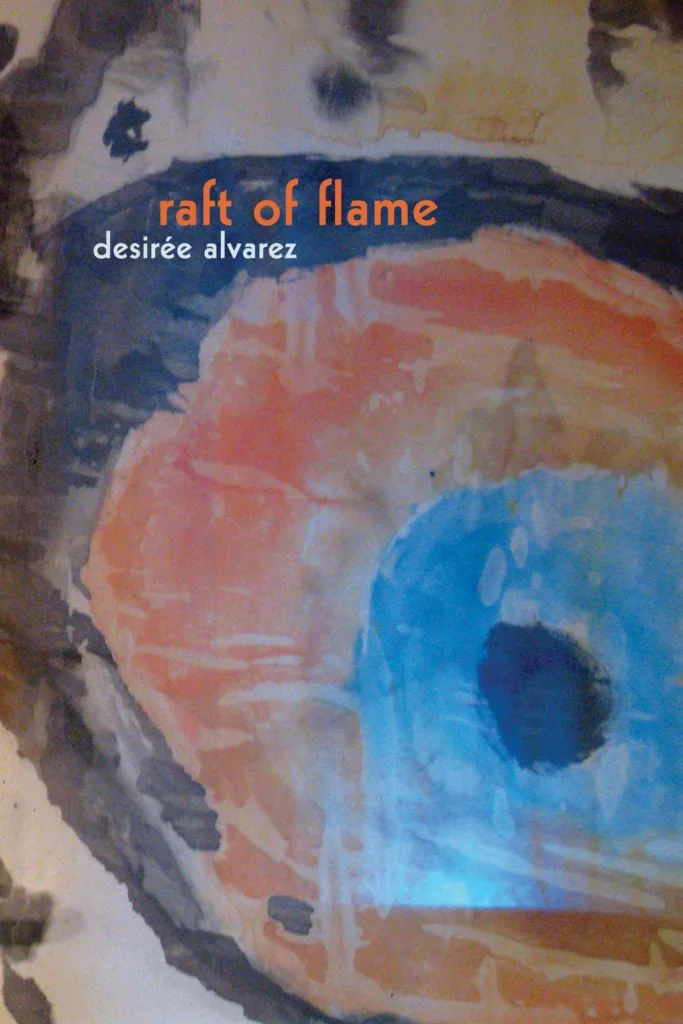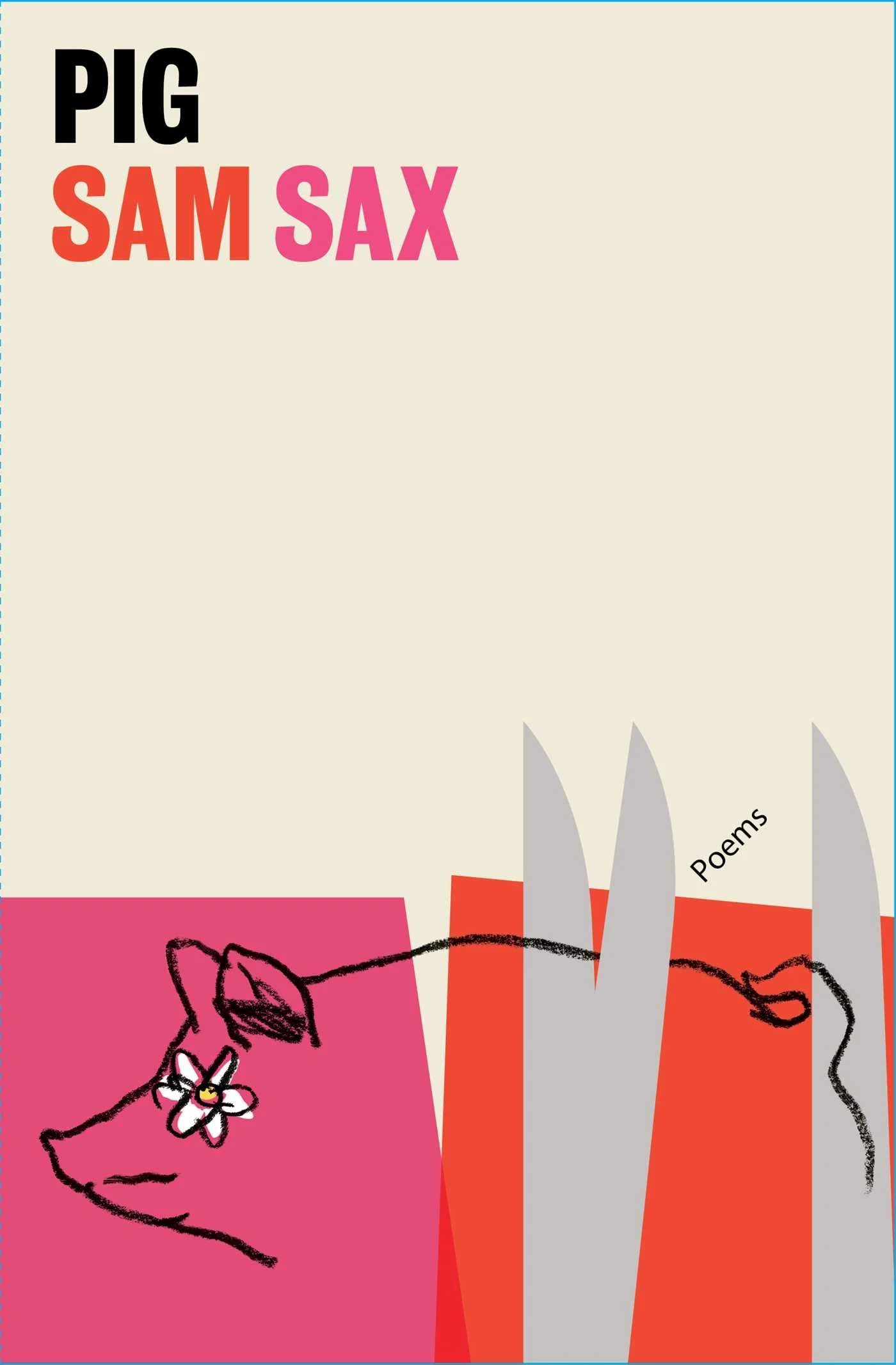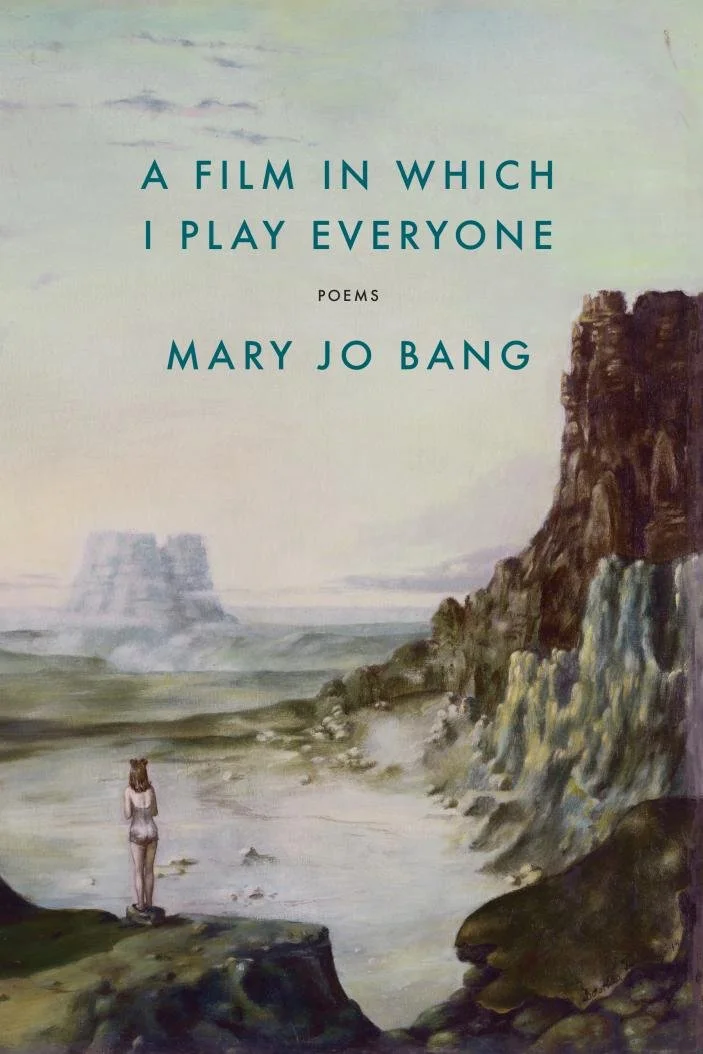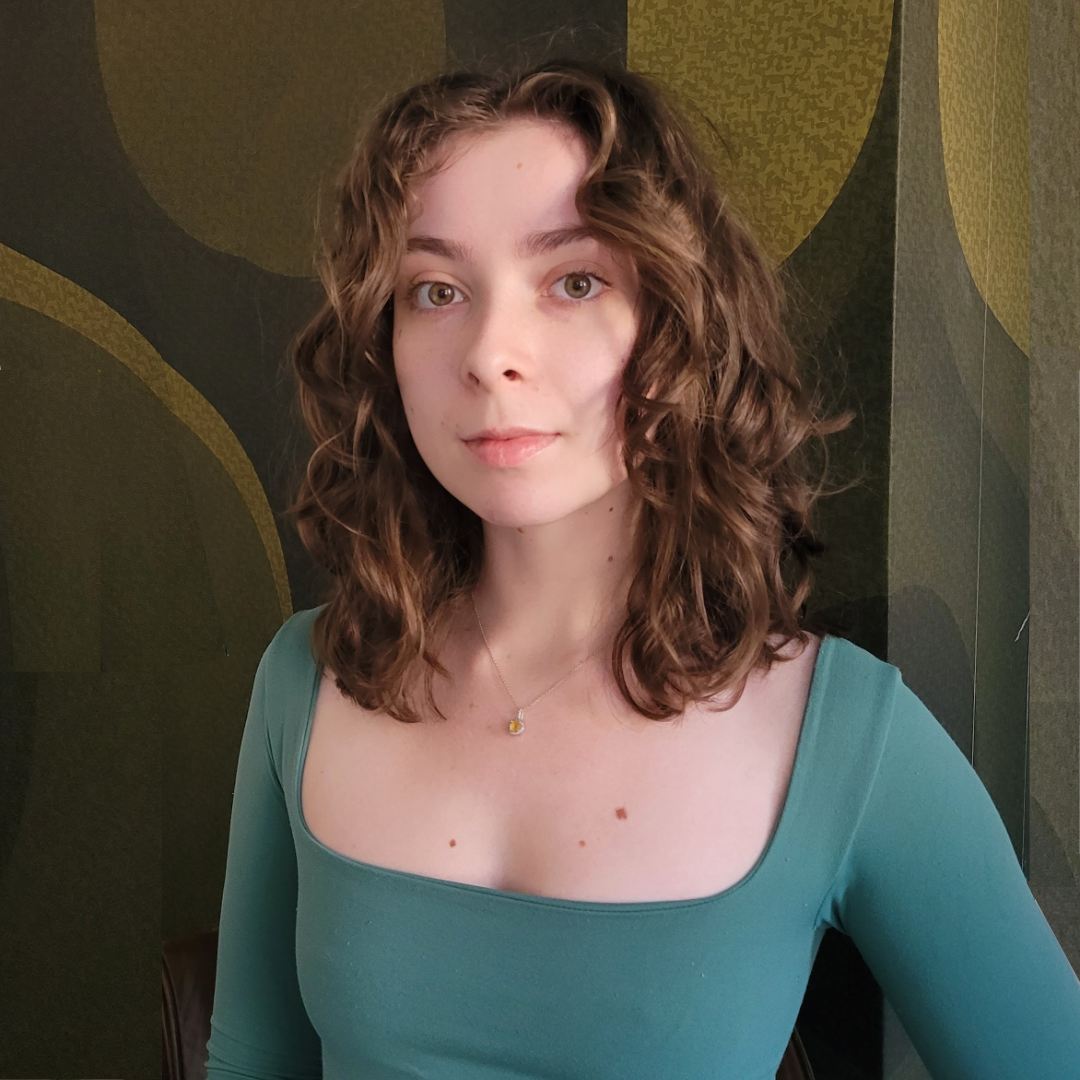Window to the Self: Excavating Identity in Contemporary Poetry
by A.E. Abitz
Image from Lava Lavanda
The Collection of poetry, to me, has always been a snippet of, or window into, identity; but in recent years this seems to have become a truly inescapable facet of the current condition and direction of the Collection.
Identity can be an elusive and nebulous entity, especially in such uncertain sociopolitical times. Naturally, identity can’t be contained or quantified, and this essay posits that in an attempt to handle—or pin down the identity, so to speak, the poet can elect to leverage certain craft moves, and in so doing, often (intentional or not) creates a thread throughout their collection which illuminates a window to the self. These poems are able to stand independently, and are still evocative of identity, but the image becomes increasingly vivid and closer to a truly encompassing sense of the self when certain craft elements are used in conjunction throughout a Collection. These elements I’ve noticed from recent exceptional volumes include: the evocation of history and/or ancestry to lay a foundation for personality and obsession, and persona sequences to create distance with which to analyze pieces of identity or experience/trauma.
Raft of Flame by Desirée Alvarez.
Omnidawn, 2020.
History & Ancestry
Take for example Desirée Alvarez’s 2020 collection, Raft of Flame. Each of the three sections the collection is divided into grapples with history in a contained quasi-categorical way: the first section invokes the generational retrospective struggle with colonialism. It parses and relates through idiosyncratic retellings of apparently seminal colonialist instances of the speaker’s ancestry. In one exceptional poem, “Un Tintero, Inkwell,” the speaker navigates multigenerational rage through this striking imagining:
The letters of Cortés are difficult to read,
on each page a horse dies.
The lord of the city lives homeless in a canoe.
Hundreds of natives are speared.
Another town is burned alive
with all its caged creatures
These historical foundations give the reader context and inform the second section of Raft of Flame where the reader is pushed through time to the experience of a more immediate history. Take “Cante Tortilla”:
Nana, teach me to make tortillas.
Mix with hands, add two scoops fat.
In the mango-painted kitchen slapping dough.
Knead and squeeze in fist. Flour, water, crisis.
We begin to understand who the speaker is through biographical detail. Each image, chosen by the poet, becomes a globule of sand in the crucible of the Collection.
Finally, in the third section, the reader is drawn in close, to listen to the whispers which overtake the speaker’s mind. This voyage through time and history, with the intimate finale, creates a window through which the reader imagines a breathing animation of the poet and her obsessions.
Pig by Sam Sax.
Scribner, 2023.
The poet can also invoke history in the contemporary Collection in a more lyric sense and achieve this same encompassing effect. Take Sam Sax’s 2023 collection, Pig, where ancestral history is irrevocably intertwined with the poet’s sense of identity, and where cultural history informs a distinctive adaptation which enhances the crispness of personality. For example, in the poem “Anti-Zionist Abecedarian,” we are introduced to this notion of multigenerational transience:
home never was a place in dirt or even
inside the skin but
just exists in language. let me explain. my people
kiss books as a form of prayer. if dropped we
lift them to our lips &
mouth an honest & uncomplicated apology—
nowhere on earth belongs to us.
There is a certain resigned affinity to these lines, less rage than in Raft of Flame, but still a grappling with the speaker’s intractable history, and similarly, a vignette of identity emerges.
As Sax’s collection continues, our window becomes clearer, and the inclusion by Sax of other particular moments work incredibly to enhance our understanding of the poet’s identity. The poem “Experiments” is an excellent instance of this propulsion:
beneath their skin the loudspeaker commanded
the televisions on & there the towers smoked
like fathers. what else could we do but leave
to call home? leave that room
The placement of this poem later in the collection than “Anti-Zionist Abecedarian” works to align the reader’s sense of time in the evocative thread of the poet’s history with the parallel “what else could we do but leave,” and complicates the understanding of the self (such is the nature of identity) where the speaker, ostensibly American-identifying, has now been subject to their own direct cultural trauma.
One could continue on about these historical and ancestral exhibitions of identity in recent contemporary collections, but I think we see the weight this choice brings to the foundation of identity in individual poems certainly, but also in the complexity and movement of identity in the Collection as a whole—so let me move on now to persona.
Recurring Persona
As we know, one craft move in poetry to bring the reader closer can be in the creation of distance—and I’ve found in recent collections, the use of persona (specifically recurring or sequential persona) while seemingly removed, enables the poet to cope with and parse particular experiences which actually illustrate identity.
Take, again, Sam Sax’s Pig, which is on the whole a kind of undertaking of persona, but I’d like to zoom in on the “Pig Bttm” sequence. While the use of history and ancestry works throughout this collection to lay the foundation of identity, these sequential persona poems enrich our development of the window to the self—more specifically, enrich our understanding of the speaker’s struggle with desire and its implications. For example, in the first poem “Pig Bttm Looking for Now,” the context of the persona as “Pig Bttm” both enhances the critically grotesque implications of desire in lines like “would rather watch pleasure stampede through / a stranger like water through a hotel faucet” and enables the poet to parse this experience through distance while subsequently increasing upon the reader’s image of the speaker. The next poem in the sequence, “Pig Bttm Looking for Then,” functions similarly, and the last poem, “Pig Bttm Looking Up,” works to cope with the experiences of the previous two poems and appears to welcome or accept both the actual experiences and the feelings of desire in a quasi-humor-laden resignation with the ending lines: “he / laughs looking up / at the red coin the / welt he left on a / god’s heaving chest.” This progressive illustration emphasizes the significance of the struggle with desire on the individual, enhancing the reader’s understanding of the whole.
A Film in Which I Play Everyone by Mary Jo Bang.
Graywolf Press, 2023.
The fascinating thing about this craft move is that the persona can indeed be anyone or anything. I’ve found that when employed in a collection, the chosen figure typically relates back to central obsessions of the whole, and especially when history is employed, the persona tends to enliven and cohere these already present elements. Take Mary Jo Bang and her recent 2023 collection, A Film in Which I Play Everyone. Personal history is often expertly evasive (and sometimes even transferred to persona) in these poems— and persona works complexly and consistently to discreetly inform some of the ambiguity and help the reader crystallize a window to identity. For example, in the poems “Here We All Are with Daphne” and “Nothing Compares to Daphne in Green,” Bang leverages the persona of Daphne to create psychic space between the true speaker and the experience in order to parse multifaceted difficulties of womanhood, including learned passivity, suppression, sexual trauma, and other subtextual issues. In these lines from “Here We All Are with Daphne,” the speaker almost fades between consciousnesses:
walks alongside me. I never ask
where I’m going. I know I’m not meant to arrive.
Me in my nice clothes—cutwork dress,
blindfold of bark from the moment
a man turned me into a tree. “See,” he said,
“isn’t this all for the better? You with no mouth
to speak of?” By you he meant me.
Notice how the persona and the poet blend, and experiences become harmonious—this intimacy of distance creates a habitable space for the intractable.
In a similar capacity, the distance of the ekphrastic poem can also provide a secure and malleable base for the poet to explore and grapple with trauma. To some extent, Mary Jo Bang’s A Film in Which I Play Everyone could be argued as ekphrastic in its entirety given the collection’s elusive and lyric qualities which often derive extensively from art, cinema, and literature, and which tends to simultaneously defy biographical frankness and excavate the intricacies of distinctive experiences—but I digress. I do believe, though, that persona and ekphrasis can work in tandem when addressing issues of trauma as it relates to identity throughout a collection, as Bang, Alvarez, and many other contemporary poets demonstrate.
Conclusion
The complexity and idiosyncrasy of identity is fascinating in idea alone, but when considered in conjunction with poetic craft, the compulsion of the poet to contain and digest this entity is clear. In pursuing craft moves like the evocation of history and persona, the poet is given space to situate, articulate, and excavate the potentially more elusive or intractable pieces of identity. I’ve touched on merely a few, though powerful, examples in the contemporary canon, and while possibly an incomplete or in-progress consideration of this exploration of identity at work, it remains a fascinating facet of the contemporary Collection.
A.E. Abitz is an MFA student in poetry at Emerson College. She holds a BFA in poetry from Texas Tech University, where she received the Stephen Ross Huffman Poetry Award in 2021. Her work has appeared in The Dewdrop, Beyond Words Magazine, and others. She volunteers as Art Director and Print Editor for Redivider in her free time. IG handle: @ashley.abitz






